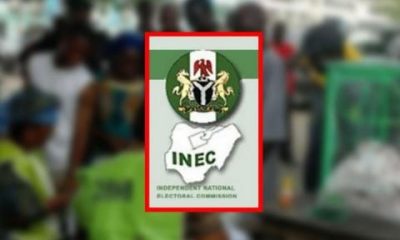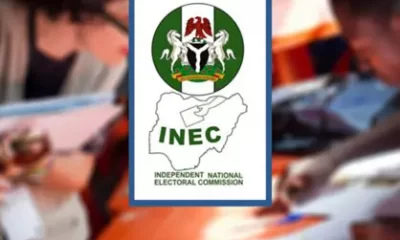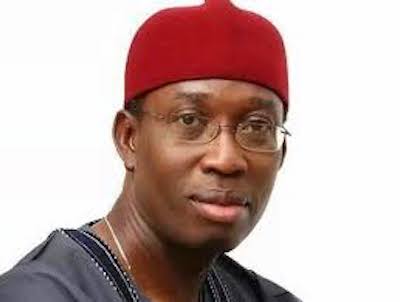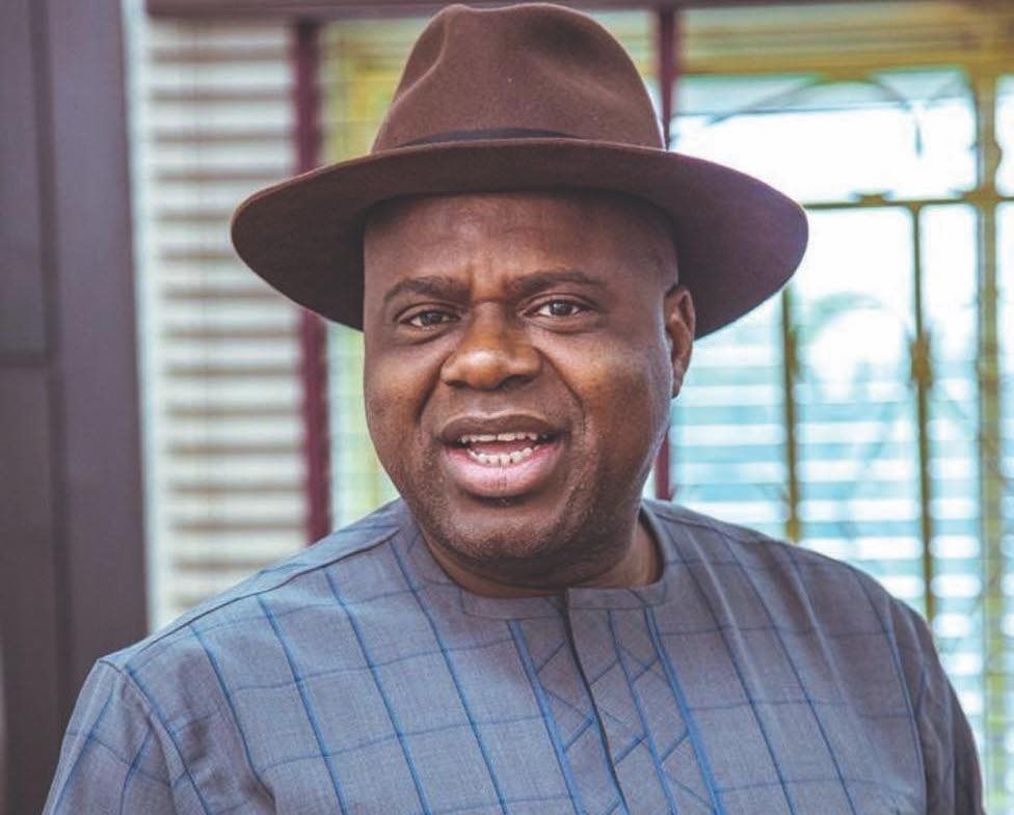view point
INEC and Machine Promises, a Little Skepticism May Help
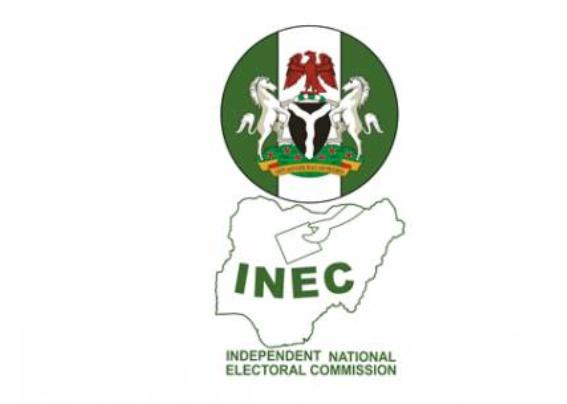
By Okoh Aihe
Some interesting developments are taking place before us. Elections come up next year, but the heat is on already. Young people are trooping out across the nation to register as a precursor to getting their permanent voter cards, PVCs.
The excitement is high but so is the foreboding on the part of dubious politicians who are not so sure anymore what the next wave of reaction may be.
Forced into undeserved concerts by the European Union, EU, the usually sanctimonious Independent National Electoral Commission, INEC, was forced into extending the registration period after a choreographed response of no to every reasonable appeal made by well-meaning individuals and organisations.
I am not surprised at all that there is a renaissance in the reasoning of these young people whose lives and future have been compromised and put in absolute jeopardy by this government. Reasons come in painful droves but I give only two.One painful evening, on October 20, 2020, a number of young people, mostly students who were engaged in a peaceful protest code-named #EndSARS, to force the Nigerian government to look into the ignoble operations of an arm of the Police Force called SARS, were killed by the Nigerian Army and the Police at the Lekki Tollgate in what the local, national and international media described as a massacre.
There was a litany of evidence but government declared the contrary and went after organisations who dared to ventilate the truth that was clear even to the visually-challenged. Our young people lost friends and colleagues and played ugly host to wickedness in high places while singing the National Anthem and waving the Nigerian flag. The judicial panel of enquiry set up even by the Lagos State government stayed on the side of the people as it confirmed there was indeed a massacre. This is not a story you forget overnight.
The second reason. Since February 14, 2022 or March 14, 2022, depending upon the date your tolerance can accommodate, Nigerian university students have been at home courtesy of a strike called by the Academic Staff Union of Universities, ASUU. For over four months, their lives have been put on hold, like a telephone call that is paused. Even with all the technology the call can suddenly drop and conversation is terminated.
We are not a nation of figures, so nobody is calculating the cost of the strike to the students, their parents, the lecturers and how all that impacts on the quality of scholarship or pedagogy in our institutions and the overall health of the nation.
Obviously there is a wrench in this generation that may be very difficult to heal. Although so many phantasmagoric tales are being told about the reawakening of these young people, I am forced to confess that it would have been irresponsible if they did not harvest this opportunity to send a clear message to some of the politicians that have turned their lives upside down.
After seven years, this government has stubbornly refused to accept responsibility for any ill in the land. The youth may just be ready to send a message. Who benefits is a different matter and it is not anything that anybody can willfully appropriate.
Seeing that it cannot move against the tide, INEC has promised to send more machines into the field, beginning from Abuja, with the overall boss, Professor Mahmood Yakubu, saying that everybody that has come out for the exercise will be registered. For instance, about 50 more voting machines will be sent to the Area 10, Old Parade Ground in Abuja. Without claiming to be overwhelmed, I am sure that even INEC is not amused by the frothing interest of the people, and must now bend over backwards to accommodate all such interests.
And this is where my fear creeps in, looking at the unsavoury history of this nation when it comes to data capturing. We are not good at it all. Data is captured at the banks(bank verification number, BVN). Data is captured when you process your national identity card, and must therefore carry a national identity card number, NIN, like a blood sample.
Data is captured when you buy a SIM (subscriber identification module) card through the process of SIM registration. Data is captured when you process your birth certificate at the National Population Commission, NPC. Data is captured when you process your driving licence.
And data is captured when you process your international passport at the Immigrations. Everywhere you turn is data capture without control and appropriate deployment but the hapless Nigerian is forced to endure every arising inconvenience.
My concern with the ongoing voter registration is that the frontend seems to be enjoying some attention and sunshine but what is happening at the backend? At what time will all the data captured be migrated to the main server for keeps and onward processing? Yakubu has promised that all those registering now will get their PVCs by October.
What this communicates is that the backend may also have been taken into consideration. But as they say, talk is cheap. There is every welcome need to be cynical until the final output, which are PVCs, are delivered.
Oh, this red flag is not necessary? I appeal that you take a look at only two examples. SIM registration began in Nigeria in 2011. Seven tech companies were initially engaged by the Nigerian Communications Commission, NCC, to carry out the exercise.
Further down the road, the operators themselves also became implementers who were involved in the process of SIM registration. But there was always a problem between the frontend and the backend, tedious data scrubbing to achieve some level of integrity and cumbersome harmonisation problems which continued to prove a nightmare.
The operators were to carry the blame, unfortunately. The NIN/SIM data verification process which began in December 2021 has not been weaned from such convoluting uncertainties. NIMC originally had the responsibility to issue national identity cards but did not have the capacity to perform. The situation worsened when the data verification process was dropped in its plate of engagement.
After the initial rodomontade claim of capacity, the telecom operators were later pressured into joining in the data registration process. This writer is aware that the operators invested massively in buying hardware for the exercise.
Till date quite a number of these machines have not been properly formatted, and the data captured by the various operators go through a verification process that is nightmarish. Again the biggest drawback is the relationship between the frontend and the backend. Closure to the verification exercise is open ended after repeated threats and there are no indications that it will end in the foreseeable future.
I am of the considered opinion that INEC doesn’t have the capacity to perform magic. Not even the assurances from the chief executive will influence my position on this. The story that is unfolding before us may not be too different from the examples listed above, especially when weighed against a past that is woolly.
Is it not the same INEC that recorded a perfect score in terror-ravaged areas where the internally displaced people, IDPs, voted more than states where there was relative peace then. Whatever INEC is saying, the youths, more than the various political parties, should keep an eye on them. The capacity for mischief is not far from the organisation. I believe in the saying of my forebears that a leopard does not change skins overnight. Not even tech supremacy in terms of voter registration can make INEC achieve that feat.
view point
The Quest to Support Nigeria’s Breastfeeding Mothers

By Folasade Akpan
Breastfeeding is widely recognised as the single most important source of nutrition for infants in the first months of life.
It is a low-cost, life-saving practice that also delivers long-term gains for cognition, health, and the economy.
Regrettably, in Nigeria, many mothers still struggle to breastfeed exclusively for the recommended six months or to continue breastfeeding alongside complementary feeding for up to two years because of weak systems of support at home, in health facilities, and at work.
The World Breastfeeding Week (WBW) is observed globally, annually, from Aug. 1 to Aug. 7.
The theme for 2025 WBW, “Prioritise Breastfeeding: Create Sustainable Support Systems”, underscores the critical role of breast milk in child survival, growth, and healthy development.
The United Nations Children’s Fund (UNICEF) expressed concern over stagnating exclusive breastfeeding rates in Nigeria, which remain at just 29 per cent.
The fund said that while more than 90 per cent of mothers in Nigeria breastfeed, the rate of early initiation of breastfeeding has declined, from 42 per cent in 2018 to 36 per cent in 2023.
According to UNICEF, data from the 2023–2024 National Demographic and Health Survey (NDHS) reveals troubling trends in optimal breastfeeding practices.
“Only 23 per cent of babies are breastfed up to the recommended age of two years.
“Just 12 of Nigeria’s 36 states, including the Federal Capital Territory, currently offer paid maternity leave for up to six months,” the fund said.
To reverse the negative trend, UNICEF emphasised the need for mothers to be supported at home, in healthcare facilities, and at work.
The agency recommended initiating breastfeeding within the first hour of birth, exclusively breastfeeding for the first six months, and continuing breastfeeding with complementary foods up to at least 24 months.
Giving a mother’s perspective, Mrs Folasade Adediran, a teacher and mother of three, described her breastfeeding journey as both rewarding and challenging.
“Being a breastfeeding mother is not an easy task; sometimes, it can be overwhelming but with the kind of people I am surrounded with, their words and encouragement have kept me going; I must say, I am a lucky person.
“Breastfeeding a child in public transport is quite challenging but I think I am beginning to overcome it.”
She confirmed that during antenatal, mothers were taught the importance of breast milk to their infants which had been impactful.
Adediran said it was in those teachings she learnt that children who are given only breast milk for the first six months are always more healthy and stronger.
“I did it while nursing my first child and before she was eight months she had started walking and at the same time, she was teething.
“As a result, I have promised myself that any child that comes out of me must enjoy that privilege that is apart from the fact that it saves you money.”
On how she manages being at work and breastfeeding, she said that it was very inconvenient as she might be called upon at any time to attend to the baby.
“Being a teacher, you cannot leave your lesson halfway during class, and at the same time, you cannot leave your child to keep crying.
“Most of the times, I express breast milk but along the line, it gets finished before the close of the day, so managing work and breastfeeding is not easy at all.
“I suggest that longer maternity leave would be best for working mothers for at least a period of six months for exclusive breastfeeding,” she said.
From an expert’s view, Ms Uju Onuorah, a nutritionist, described exclusive breastfeeding for the first six months as vital, providing “the perfect balance of nutrients in the right proportions to support a baby’s rapid growth and brain development.”
She said that colostrum, the first milk, was rich in antibodies that protected against infections such as diarrhoea, pneumonia, and ear infections, while breast milk adapted to meet changing needs.
On long-term benefits, she said that children who were breastfed had lower risks of diarrhea and respiratory illness in infancy and, later, lower rates of obesity, type-two diabetes, and some allergic diseases, alongside modest but meaningful cognitive advantages.
“Mothers benefit from lower lifetime risk of breast and ovarian cancers, type -two diabetes, hypertension, and cardiovascular disease, including faster postpartum recovery.
“Economically, families save money, employers gain from fewer parental absences, and health systems see long-term savings,” she said.
Onuorah acknowledged cultural and workplace barriers, including pressure to give water or herbal mixtures, food insecurity, and lack of workplace facilities.
She stressed the need for breastfeeding-friendly workplace policies, community support groups, and engagement of family members.
In calling for action from concerned stakeholders, the Health Writers’ Association of Nigeria (HEWAN) urged governments, healthcare providers, and communities to treat breastfeeding as a public health necessity rather than a personal preference.
“Breastfeeding is more than a personal choice; it is a public health necessity.
“It is a proven public health intervention that provides unmatched health benefits for both babies and mothers,” the association said.
Prof. Mark Okeji, Registrar of the Radiographers Registration Board of Nigeria, identified family support as key to effective breastfeeding practice.
“To improve breastfeeding practice, families must adopt practices rooted in love, compassion and understanding, fostering a positive environment for breastfeeding mothers,” he said.
Benue State Commissioner for Youth, Sports and Creativity, Mr Terkimbi Ikyange, said three months maternity leave was “grossly inadequate” for achieving exclusive breastfeeding.
The Nigerian Governors’ Wives Forum (NGWF), led by Prof. Olufolake Abdulrazaq, wife of the Kwara governor, also advocated for six months paid maternity leave in all 36 states.
The forum pledged to engage governors and state legislators to promote the policy across all states for improved maternity and child welfare.
In Kaduna State, the Commissioner for Health, Umma Kaltum-Ahmed, said the government had inaugurated baby crèches in key institutions “to ensure women do not have to choose between their careers and their children’s well-being.”
Highlighting the government’s role, the Coordinating Minister of Health and Social Welfare, Prof. Muhammad Pate, reaffirmed the Federal Government’s commitment to promoting optimal breastfeeding practices.
“Breastfeeding is not the sole responsibility of women, but a shared obligation; it must be treated as a public health priority, a national development strategy, and a climate resilience measure,” he said.
Pate listed interventions such as training healthcare workers, implementing baby-friendly hospital initiatives, granting 112 days paid maternity leave to federal civil servants, two-hour daily breastfeeding breaks, and 14 days paternity leave.
He also highlighted enforcement of the International Code of Marketing of Breastmilk Substitutes through NAFDAC to curb aggressive promotion of formula and protect exclusive breastfeeding.
“If we get breastfeeding right, we take a giant step towards ending malnutrition, reducing poverty, building a resilient climate-smart nation, and securing a healthier, more prosperous Nigeria,” he said.
Stakeholders hold that breastfeeding should be taken seriously as it is a wholesome nutritional and immune-boosting practice that equips the baby for healthy development.(NAN)
| ReplyReply allForwardAdd reaction |
view point
Can Tech Solve Talent Shortages Sustainably?

By Juliet Alika
Industries around the world are facing a paradox: talent shortages in key sectors and rising unemployment in others. Developed nations struggle with ageing populations, while emerging markets grapple with youth unemployment. Artificial Intelligence is seen as a potential solution, improving productivity and job matching, but concerns remain about if it can be sustainable and inclusive.
Across industries, employers are having trouble finding the necessary talent at the right time, while millions remain underemployed or excluded.
AI also risks displacing jobs, reinforcing bias, and widening inequality, benefiting developed nations and large firms over small businesses and developing economies. The challenge is ensuring AI addresses labour gaps ethically, inclusively, and in ways that strengthen the global workforce.ManpowerGroup’s 2025 Talent Shortage report reveals that for the first time in 10 years, businesses are reporting a decrease in skills shortages, with 76 per cent of employers reporting difficulty in filling roles due to a lack of skilled talent. The challenge is structural, affecting healthcare, logistics, engineering, and fast-growing digital fields. The global talent crunch is driven by converging forces: skills mismatches as qualifications are becoming irrelevant in evolving market demands, demographic shifts such as ageing populations in developed nations and youth unemployment in emerging economies, changing worker expectations: the desire for flexibility, purpose, and personal growth and the rapid technological disruption transforming job requirements.
As companies scramble to keep pace with rapid change, the demand for future-ready talent is quickly outstripping the capacity of traditional education and workforce development models. What’s needed is investing in lifelong, modular learning that evolves with market needs; leveraging AI to enable dynamic skills mapping and personalised upskilling; strengthening partnerships between industry, education, and government; and expanding access to non-traditional and underrepresented talent pools. Ultimately, solving the talent crunch requires reshaping workforce systems for the jobs of tomorrow.
AI is emerging as a transformative solution to global workforce challenges, offering tools to match, upskill, and mobilise talent. Beyond automating routine tasks, AI enables intelligent talent matching by analysing vast data on candidates, job descriptions, labour trends, and hiring outcomes. It considers hard skills, transferable capabilities, learning agility, and values alignment to deliver more inclusive and efficient hiring. However, this potential requires transparent implementation, bias audits, and integration into human-centred strategies to enhance, not replace, human judgment.
AI also revolutionises personalised upskilling. Traditional one-size-fits-all training no longer meets evolving industry demands. AI-powered learning platforms assess current competencies, identify skill gaps, and deliver adaptive, modular content aligned with individual goals and shifting job requirements. This approach benefits employers by developing internal talent pipelines, reducing reliance on external recruitment, and increasing workforce agility. For employees, especially underrepresented groups, it democratises lifelong learning by making reskilling affordable, flexible, and accessible beyond traditional education barriers. At scale, personalised upskilling fosters resilience, adaptability, and career confidence amid disruption.
Workforce planning and predictive insights represent another critical application. AI leverages predictive analytics to model workforce trends, aligning talent supply with future demand, mitigating economic shocks, and strengthening labour market resilience. By analysing technology adoption, demographic shifts, and economic indicators, AI anticipates emerging skill needs, guiding long-term talent strategies. Policymakers and educators can also use these insights to redesign curricula, improve vocational training, and target upskilling programmes for vulnerable populations.
Healthcare exemplifies how predictive AI can avert crises by forecasting regional shortages of medical professionals, enabling proactive interventions like expanding training capacity or adjusting immigration policies. Similarly, sectors like manufacturing, logistics, energy, and public services can prepare for automation, sustainability transitions, or large-scale retirements through targeted retraining and recruitment strategies.
Economically, AI-driven workforce planning reduces unemployment and job vacancies while supporting sustainable growth. Socially, it creates more equitable opportunities by helping workers prepare for future changes. However, ethical deployment is essential, with safeguards for transparency, fairness, data privacy, and bias mitigation. Ultimately, AI-powered talent matching, personalised upskilling, and predictive workforce planning shift decision-making from reactive to proactive. By combining technology with inclusive strategies, AI can build a more adaptable, equitable, and future-ready global workforce
Artificial Intelligence holds great potential but is not a universal solution, and overreliance poses serious risks. Bias in training data can replicate or worsen inequalities, leading to discriminatory hiring and further marginalising disadvantaged workers. Automation threatens routine and lower-skilled roles, often without generating enough alternative employment. Additionally, digital divides exclude those lacking access, connectivity, or necessary digital skills.
While AI can help address labour gaps, it may also deepen social and economic inequality unless equity, transparency, and fairness are intentionally built into its design, deployment, and workforce integration strategies.
A sustainable AI talent strategy must prioritise people over technology, using AI to enhance human creativity, problem-solving, and decision-making rather than simply replacing jobs. Organisations should invest in tools that foster employee growth, engagement, and continuous learning. Equally vital is building inclusive AI ecosystems through collaboration between developers, HR leaders, and policymakers.
This means ensuring AI systems are transparent, explainable, and fair by auditing algorithms for bias, protecting worker data, and making tools accessible across different languages, abilities, and education levels. Addressing the digital divide is crucial, requiring joint efforts from governments and organisations to expand access to infrastructure, education, and upskilling, particularly in underserved communities.
AI can also support flexible work models: remote, hybrid, or gig-based, broadening access to talent and accommodating diverse needs. However, such flexibility must come with fair pay, safe conditions, and career growth for all workers. Ultimately, a sustainable AI workforce strategy balances technology, equity, and human potential.
AI is a powerful tool, but cannot solve global workforce challenges alone, as talent shortages stem from human challenges of education, inclusion, access and opportunity. A sustainable solution requires integrating AI into a broader strategy for human capital development that prioritises equity, adaptability, and dignity at work. When used responsibly, AI can shift us from scarcity, unfilled roles and disengaged workers to alignment, where everyone has the skills, tools, and support to contribute meaningfully to the economy.
Alika is an experienced human resources and business strategy professional
| ReplyReply allForwardAdd reaction |
view point
Tinubu’s Certificate and Atiku’s Wild Goose Chase

By Tunde Rahman
Former Vice President and roundly defeated presidential candidate, Alhaji Atiku Abubakar, was a pitiful sight to behold on Thursday at the Shehu Yar ‘Adua Centre, Abuja as he sat like a wreck after addressing what he called a world press conference. He had gone on a wild goose chase to the United States in search of President Bola Tinubu’s certificate.
The former vice president however returned empty-handed after spending a fortune.
Atiku himself admitted his exploratory journey was at a hefty cost.At the press conference, the Waziri Adamawa discovered no new thing; he found nothing incriminating or untoward against the President. He is only currently engaging in political sophistry.
Apparently deluding himself that he came back from the US with a smoking gun, at his press briefing, he sermonised on the important issue of leadership and responsibility. Alhaji Atiku assaulted the memory of the late irrepressible lawyer and human rights activist, Chief Gani Fawehinmi, SAN, claiming Fawehinmi inspired his shameful, worthless and self-seeking expedition.Commending David Hundeyin, the rabble rouser who styles himself as an independent journalist, whose work he also said inspired him, it became apparent that both Atiku and Hundeyin were actually working together to embarrass President Tinubu.
Overwhelmed by his inordinate ambition, the failed PDP presidential candidate also shamelessly called traditional, religious, community and political leaders in the country including Labour Party’s Peter Obi and NNPP’s Senator Rabiu Musa Kwakwanso to rally round him in his political vendetta against President Tinubu.“This quest is not for or about Atiku Abubakar. It is a quest for the enthronement of truth, morality and accountability in our public affairs,” he said. And you wonder, what morality Alhaji Atiku was preaching. This is the same man who was indicted in the 2009 conviction of his accomplice, former United States Congressman William Jefferson, over bribery charges. Same man whose principal, former President Obasanjo, wrote a damaging testimonial on and whose years in Customs were signposted by corruption allegations.
If you have not read it, this is what former President Obasanjo said about Wazirin Atiku in Volume 2 Pages 31-32 of his book “My Watch”: “What I did not know, which came out glaringly later, was his parental background which was somewhat shadowy, his propensity to corruption, his tendency to disloyalty, his inability to say and stick to the truth all the time,a propensity for poor judgment, his belief and reliance on marabouts , his lack of transparency, his trust in money to buy his way out on all issues and his readiness to sacrifice morality, integrity, propriety truth and national interest for self and selfish interest.”
It is pertinent at this juncture to clarify some of the issues that emerged from the deposition by President Tinubu’s former school, Chicago State University, in order to understand Atiku’s deliberate and malicious distortion.
Speaking on oath in the testimonies contained in a deposition made in the Office of Angela Liu, Atiku’s legal counsel, in Chicago, US, CSU Registrar, Caleb Westberg declared that President Bola Tinubu attended and graduated with honours from the institution in 1979. He in fact asserted that President Tinubu is the same person who attended the school from 1977 to 1979. “We believe Bola Tinubu who attended CSU is the same person who is the President of Nigeria today. Tinubu is an unusual name in the US. He matched the records in the file against the information provided by the student or on behalf of the student.”
On the insinuation by Atiku’s lawyers that the Bola Tinubu who attended the school was a female on account of a clerical error spotted against Tinubu’s name, Westberg disclosed that the admission letter issued to the Nigerian President evidently proved he was a male and attended the school between 1977 and 1979.
Probed further to confirm if the Tinubu that enrolled at the school was a male or female, the registrar insisted, “Tinubu applied to the university as a male and a letter of admission was issued to a male.
“There were materials in Mr. Tinubu’s records that show he was a male in the application to CSU. Mr. Tinubu identified himself as a male. His letter of admission identified him as a male. It says: ‘Dear Mr. Tinubu’”, he said.
It is relevant to point out that in the US, premium is not placed on certificates, otherwise called diplomas, as we do here. Certificates are merely ceremonial. The emphasis is on transcripts. Employers and schools offering admissions for higher education will only ask for previous transcripts.
In most cases, the certificates are also printed by third party vendors. Many certificates are left uncollected because what is important is the transcript. The CSU has diplomas that students didn’t pick up in its possession.
“I have the diploma that was made available to Mr. Enahoro-Ebah in our possession because Mr. Tinubu did not pick it up. I do not have the diploma that was submitted to INEC in our possession because he had picked it,” Westberg clarified while responding to another question.
Other matters also came up during the over five-hour interrogation session that I do not want to bore you with in this piece. However, it is surprising that Atiku and co would claim President Tinubu forged his certificate simply because the CSU Registrar said he could not authenticate the certificate presented to him by Atiku’s lawyer as the document Tinubu presented to INEC for the 2023 Presidential Election. He said he cannot confirm because only Tinubu has the certificate which he ordered and which had been picked up for him and that the school does not keep students’ certificates. Nowhere in the interrogation did Westberg use the word fake or forged as Atiku’s lawyer tried to make him say so. Fact is there is no scintilla of doubt that President Tinubu attended and graduated from CSU. As my colleague, Temitope Ajayi, pointed out in his widely-publicised tweet, “You can only forge a certificate you never earned.” President Tinubu honourably earned his degree and he had no reason to forge the certificate of a degree he had in his kitty. He graduated Summa Cum Laude, with distinction. He was on the Vice Chancellor’s Honour List for all his years in the school. Insinuation by anyone that he forged a certificate he worked for is sad and misleading.
Indeed, attempts by some to liken the situation with those of the disgraced former House of Representatives Speaker, Salisu Buhari and former Minister of Finance, Kemi Adeosun are disingenuous.
Former Speaker Buhari forged the certificate of Toronto University he never attended. He was removed from office for the forgery. Former President Obasanjo later pardoned him. As for former Minister Adeosun, those who brought her to limelight and sponsored her for the ministerial appointment arranged a fake NYSC exemption certificate for her to scale Senate screening. The same people did her in when disagreements broke out between them, giving her away as a certificate forger over which she eventually resigned. The cases are markedly different: President Tinubu earned his stripes.
In the final analysis, it is yet unclear how Atiku plans to benefit from whatever he claims to have brought back from the US. Certificate forgery was not pleaded in his election petition now at the Supreme Court. Without being a lawyer, this is a civil case and I understand you can’t make new pleas or present new evidence in a case that has passed the court of first instance and is at present on appeal at the Supreme Court.
What the Waziri Adamawa has demonstrated in all of his Shenanigans is that he is a sore loser. Will he gain what he failed to get at the ballot through his present indecent and unpatriotic overseas search and unfounded and hollow discovery, making a mountain where there is even no molehill, unnecessarily heating up the polity and denigrating the Justices of the Supreme Court? I don’t think so!Rahman, former Editor of Thisday on Sunday Newspaper, is a Presidential Aide.



